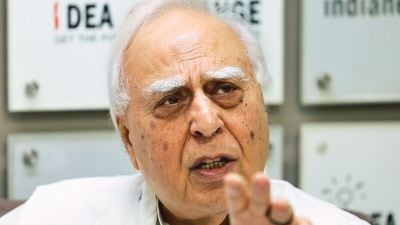Click here to follow Screen Digital on YouTube and stay updated with the latest from the world of cinema.
Arjun Kapoor decodes economics of a Bollywood film in 2025: A Rs 500 cr blockbuster gets you only Rs 150 cr; can’t rely on theatrical business
Arjun Kapoor broke down the current revenue model of the Indian film industry and explained how it's become completely inverse to what it was in 2019.
 Arjun Kapoor breaks down the theatrical business today.
Arjun Kapoor breaks down the theatrical business today.Arjun Kapoor has been an actor for over a decade, but as the son of seasoned producer Boney Kapoor, he has a keen understanding of how the film business works. The actor recently broke the revenue model down in layman language, explaining why just an MBA degree won’t fetch you sufficient returns in the Indian film industry.
“There’s no upside to making films. Those who come from the outside would think it’s Russian Roulette, it’s gambling, not a business. I think the first thing to note is don’t look at it like an Excel sheet because it’s a very gut and impulsive profession. You’ve to keep a lot of your education aside when you want to do something,” said Arjun.
“In that chaos, to find some structure and order, some numbers come in. You can’t rely on your MBA degree to make a movie. You can use your MBA in the process of making the movie, but the choice to make that movie should come from you as an audience, and why the directors, writers, and actors have that vision. Those numbers are important because at the end of the day, it’s a business. You have to safeguard the people who invest in the film,” he added in a session at a FICCI event.
Arjun traced how film business has become far more “formulaic” since 2010-12, ever since he entered the movies with Habib Faisal’s 2012 romantic drama Ishaqzaade. “Theatrical is your core business revenue, it decides the budget of the film. Earlier, satellite used to be your biggest post-theatrical revenue, but now the advertisements have shifted to social media and YouTube. Then there’s music and digital,” he explained.
But he also debunked the myth that the producer earns all of the Rs 100 crore if a film makes that much at the box office. “Theatrically, when you hear the film did Rs 100 crore, the distributor share is only Rs 50 crore. The rest goes to exhibition and taxation. The distributor would usually pay you the Minimum Guarantee upfront so that you have the cash flow to make the film. Eventually, when you make Rs 500 crore in theatrical, you actually earn only Rs 150 to Rs 200 crore. Overseas can be another revenue, but the revenue sharing is very different there. It can be 45-55% or 40-60% depending on the model,” said Arjun.
Arjun recalled how pre-pandemic, when a producer used to make a Rs 100 crore movie, their goal was to get at least 75% back via theatrical. “But now, that’s changed because there’s no minimum in theatres. It can do Rs 5 crore or Rs 50 crore, there is no middle,” argued Arjun.
He quoted the example of his 2016 romantic comedy, R Balki’s Ki & Ka, in which he was paired with Kareena Kapoor. While it was made on a budget of Rs 25 crore, plus Rs 5 crore in Print and Advertising, it made Rs 50 crore in India theatrically, plus over $5 million overseas. So, the film covered its cost from theatrical. He revealed that the makers made some money via satellite and sold the music rights at a notional value. There was no digital.
“But we knew a Kareena-Arjun film would do at least this much. There’s no such guarantee today. So, the revenue model is changed completely. Today, you need to first determine what your digital, satellite, and music would be because that’s the base value of your film. It’s become inverse to what it was in 2019. Theatrical is a bonus now. The economics of our industry has completely flipped now,” said Arjun.
Arjun also explained why the theatrical business is suffering. “The OTT platforms only what a certain number of films to be there. The satellite doesn’t work because the advertising has shifted to YouTube and social media. And the music is downloadable. So, one doesn’t know where to exactly recover the money from,” he added.
- 01
- 02
- 03
- 04
- 05


































